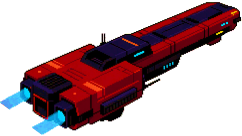Explore >> Select a destination

|
You are here |
www.sebastiansylvan.com | ||
| | | | |
probablydance.com
|
|
| | | | | I had to get there eventually. I had a blog post called "I Wrote a Fast Hashtable" and another blog post called "I Wrote a Faster Hashtable." Now I finally wrote the fastest hashtable. And by that I mean that I have the fastest lookups of any hashtable I could find, while my inserts and | |
| | | | |
attractivechaos.wordpress.com
|
|
| | | | | Array and hash table are probably the most important data structures. Some programming languages such as Perl, Lua and Javascript, almost build the language core on top of the two data structures. While array is straightforward to implement, hash table is not. This is why we have paid continuous efforts in improving the hash table... | |
| | | | |
tessil.github.io
|
|
| | | | | ||
| | | | |
blog.lohr.dev
|
|
| | | A review by a Rust enthusiast | ||




